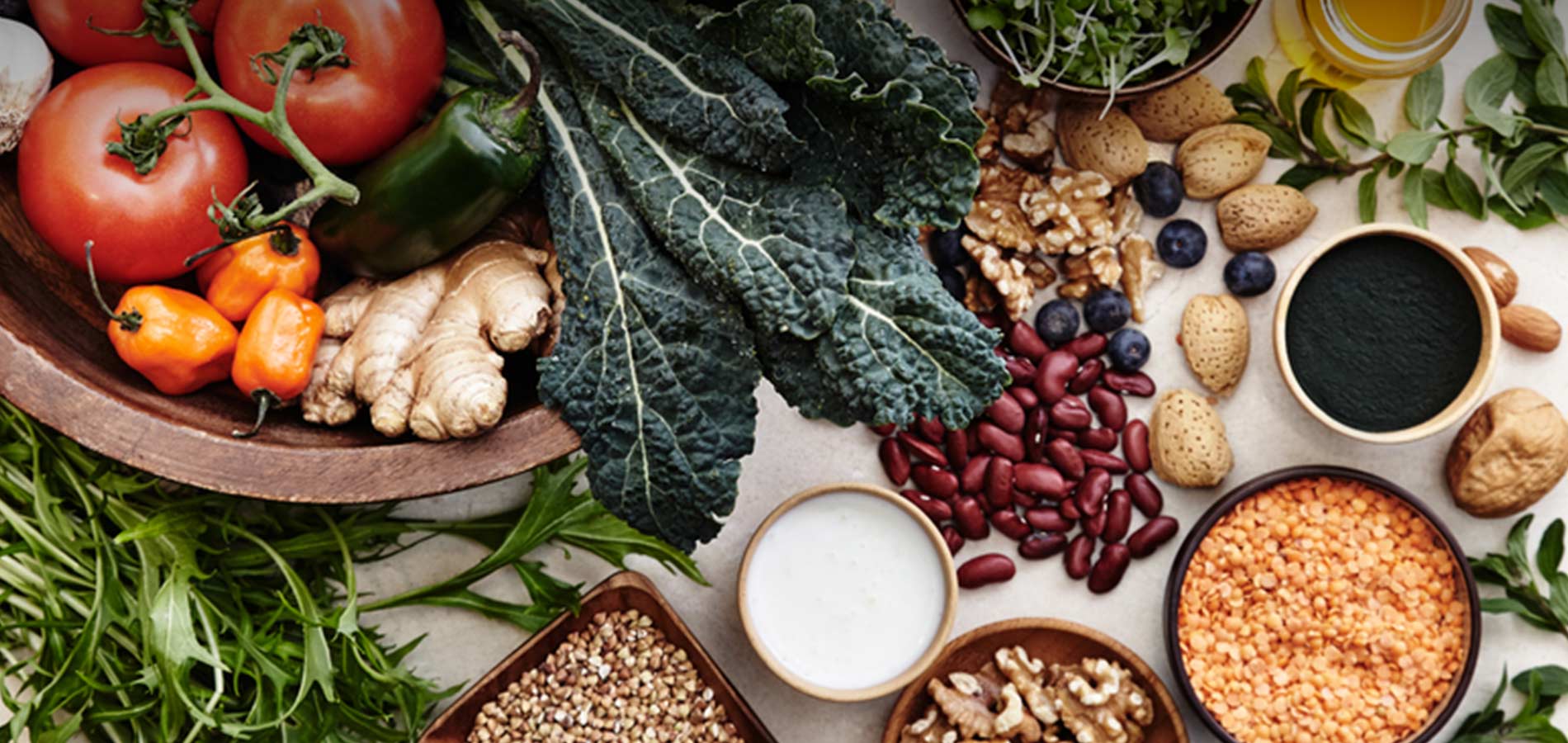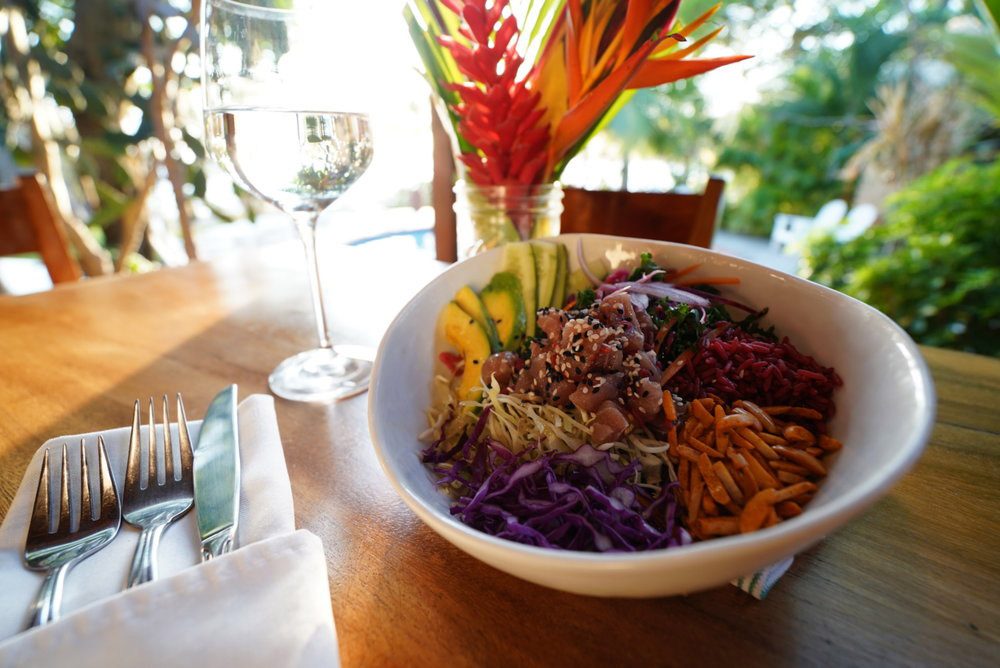
“Eat food. Not too much. Mostly plants,” Michael Pollan famously wrote in his book In Defense of Food. This is a line I do my best to live by when it comes to my relationship with food.
I decided to try vegetarianism at the age of 11. This was in the mid-90s when vegetarianism, PETA, and a refocusing on food sourcing started to flood mainstream media. My initial venture into vegetarianism wasn’t morally driven. Rather, I had read an article in Rock and Ice magazine on the benefits of a plant-based diet for athletes. So I decided to give it a try. Mind you, “plant-based” wasn’t the term used back then. Being vegetarian 23 years ago meant a lot of soy-based meat replacements and textured vegetable protein (TVP). Today, I almost never touch soy unless it is fermented and I steer clear of any protein isolate (a protein separated from its fats and carbs which some say protein needs in order to be properly digested and assimilated into your body).
I can’t say for certain whether or not my athletic performance actually improved from my diet change, but that decision definitely molded the way I have made my dietary decisions ever since. Over the past 23 years, I have been vegetarian, vegan, a pesco-pollo-tarian, a pescatarian, and currently a flexitarian, another phrase coined by Michael Pollan. Much to my beautiful, Italian mothers chagrin, I have not touched red meat or pork since that fateful day in 1996.
What does this mean? To me, and to many others that are in the field of researching sustainable nutrition, our current way of eating and obtaining food, (especially in the United States) is highly unhealthy for our bodies and for our planet. I am not here to preach any hard and fast rules for what you should or shouldn’t do. You are an intelligent and curious reader and I trust that if you dig a little deeper you will find many resources to educate yourself with. What I am here to do to is to advocate for your own education on this topic and to give you a glimpse into how I choose to eat based on my level of education, listening to body’s own innate ability to discern what is needed, and a strong connection to my home, Mother Earth.
As a flexitarian, I eat based on where I am living and what I deem to be sustainable, necessary for my body, and most mindful of our planet. Here on the coast in Cambutal, Panama, we live in a micro-climate that makes it very difficult to maintain any kind of garden. We see no rain for at least 4 months out of the year, which is wonderful for beach living and your tan, not so great for keeping your plants from drying out. All we see is rain for another 4 months out of the year, which is great for slowing down and watching the jungle around us come to verdant life, but drowns anything that is not indigenous to Cambutal (i.e. lettuces and edible greens, tomatoes, root vegetables, etc). Mixed in there is another 4 months of somewhat moderate weather, on and off between sun and rain, and you might grow something in your garden if the land crabs and insects don’t eat it all first.
As a result, I find it necessary to allow my body the protein of fish once or twice a week in order to stay healthy in my active lifestyle. And I feel morally sound with this decision as it supports our local fisherman and is done in moderation. I suggest making sure you know where all of your animal based protein sources are coming from. Look for local species, line-caught, wild fish (not farm-raised). And if you are eating red meat, poultry or pork, research a nearby farm and butcher with free-ranging, grass-fed practices.
We are also lucky enough to have lots of chickens here in Cambutal. I personally do not eat chicken, but I am very grateful for their eggs. Our chickens are free ranging and without a rooster, so the eggs are never fertilized and are always fresh. These protein packed, magical gifts of nature are such a treat.
When it comes to dairy, I refer to the same principals as meats. I don’t eat much of it and am content with coconut milk and local queso fresco. I do love cheese though so when I find myself at a store with goat cheese or a yummy cheddar, I allow myself the splurge. I am working on the art of basic cheese making from raw milk from a local cow farmer. Not super successful yet but I’m not giving up!
So what about plant-based? When I first moved down here, I’m not going to lie, I was more than a little concerned about the lack of fresh, green foods. Our local tienda has a limited supply of produce; onions, garlic, potatoes, cabbage, green peppers, and sometimes tomatoes, cucumbers, and carrots. I got by on this for a few weeks along side the staples of pasta, rice and beans. And then I found out about an incredible partnership of two brothers, Javier and Richard, who run a farm in more central Panama, where the climate is more moderate and more conducive to growing healthy, edible foods. You send them a WhatsApp order on Tuesday and on Friday morning their white van delivers, fresh, local, hydroponic fruit and veggies right to your door! And at at third of the price of Whole Foods! Needless to say, veggie delivery day is one of my favorite days of the week. I love seeing my refrigerator filled with deep green spinach, kale, even collard greens and swiss chard, squashes, herbs, papayas and pineapple. The majority of my diet comes from these much appreciated deliveries. Other foods are supplemented by the tienda or my monthly trip to the big grocery store which is about a four hour roundtrip drive.
This somewhat consuming process of food planning and meal prepping helps me appreciate and value the chain of events that it takes to get nutrients into my body. I do not have the luxury of stopping at Trader Joe’s or Whole Foods on my way home from work. Here at the end of the road, we really have to consider where each meal is coming from. I am so grateful for the opportunity to really see the literal food chain.
And so, I “eat food. Not too much. Mostly plants.”
This is the same philosophy shared by Sansara Surf & Yoga Resort. Each individual that graces us with their presence is asked of any dietary restrictions and preferences. Before your arrival, our amazing team makes sure that the freshest, local ingredients are ready for your meals, using the same resources available to me and the rest of the community of Cambutal; local, freshly caught fish, farm-raised, free-range eggs and chicken, and organic produce.
With the best ingredients on hand, our highly skilled chefs curate mouth-watering meals with influences from around the world, from Panamanian staples, Indian and Thai cuisine, to tacos and pizza night. Breakfast ranges from smoothie bowls, avocado toast on homemade bread to omlettes with a side of fermented cabbage and pickled onions. When asked what one of your favorite parts of your stay here was (besides surf, yoga, and smiling faces of course) you are bound to say, “ the food!” The best part for me is that when I don’t feel like cooking at home, I am happy and proud to eat anything and everything created by the Sansara kitchen.
Before moving here, I was nutrition conscious. After spending time here, it has truly opened my eyes to how lucky we are to live in a world with an abundance of fresh, healthy and sustainable choices. I implore you to start looking at food shopping a little more carefully. Where does your lettuce come from? Your fruit? Your fish?
We have the ability and the luxury to make shifts in every decision we make. Next time you’re perusing the grocery store, please, be mindful. What choices can you make that will not only nurture your inner world, but also benefit our outer world which provides for us all?
